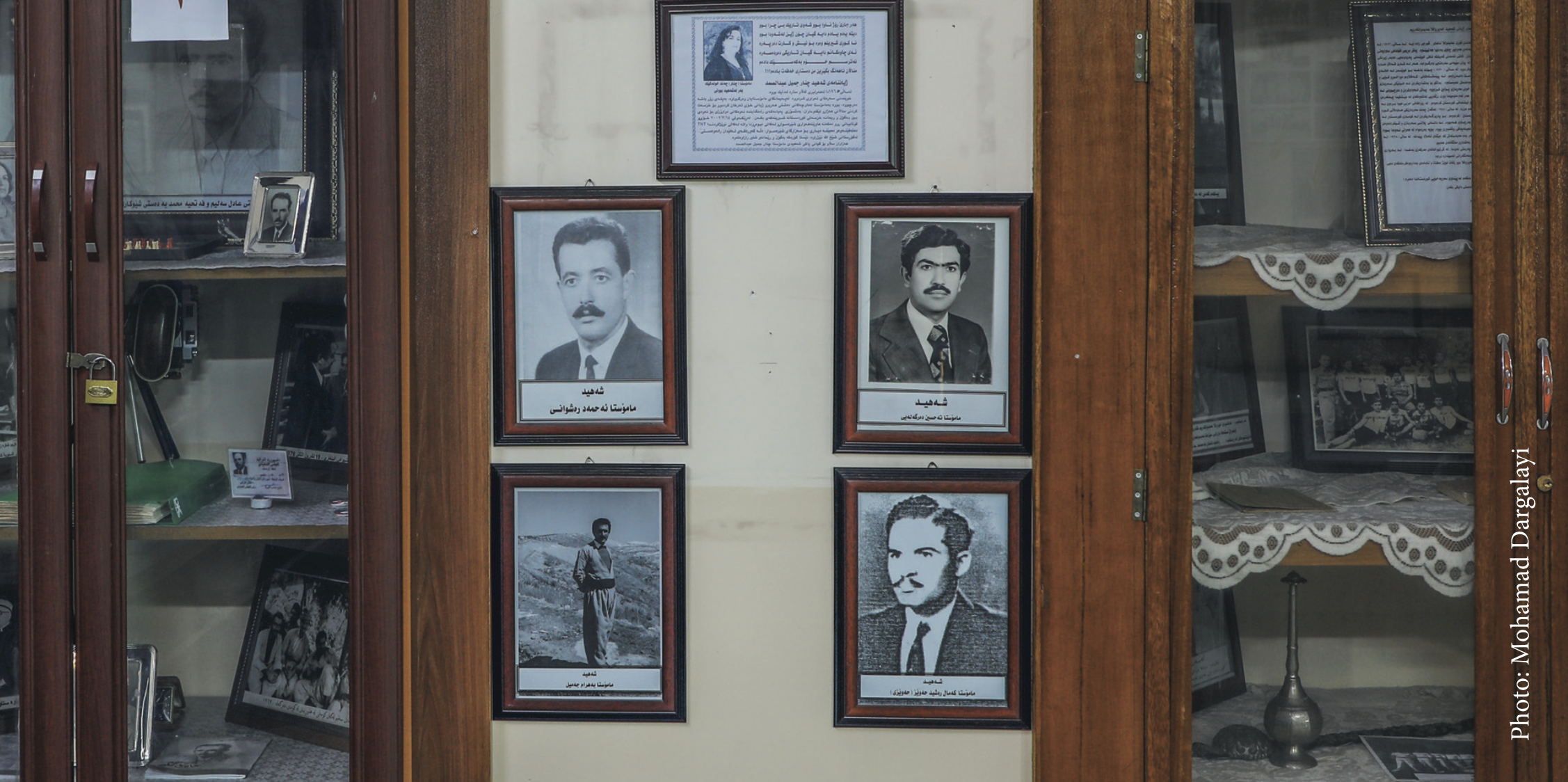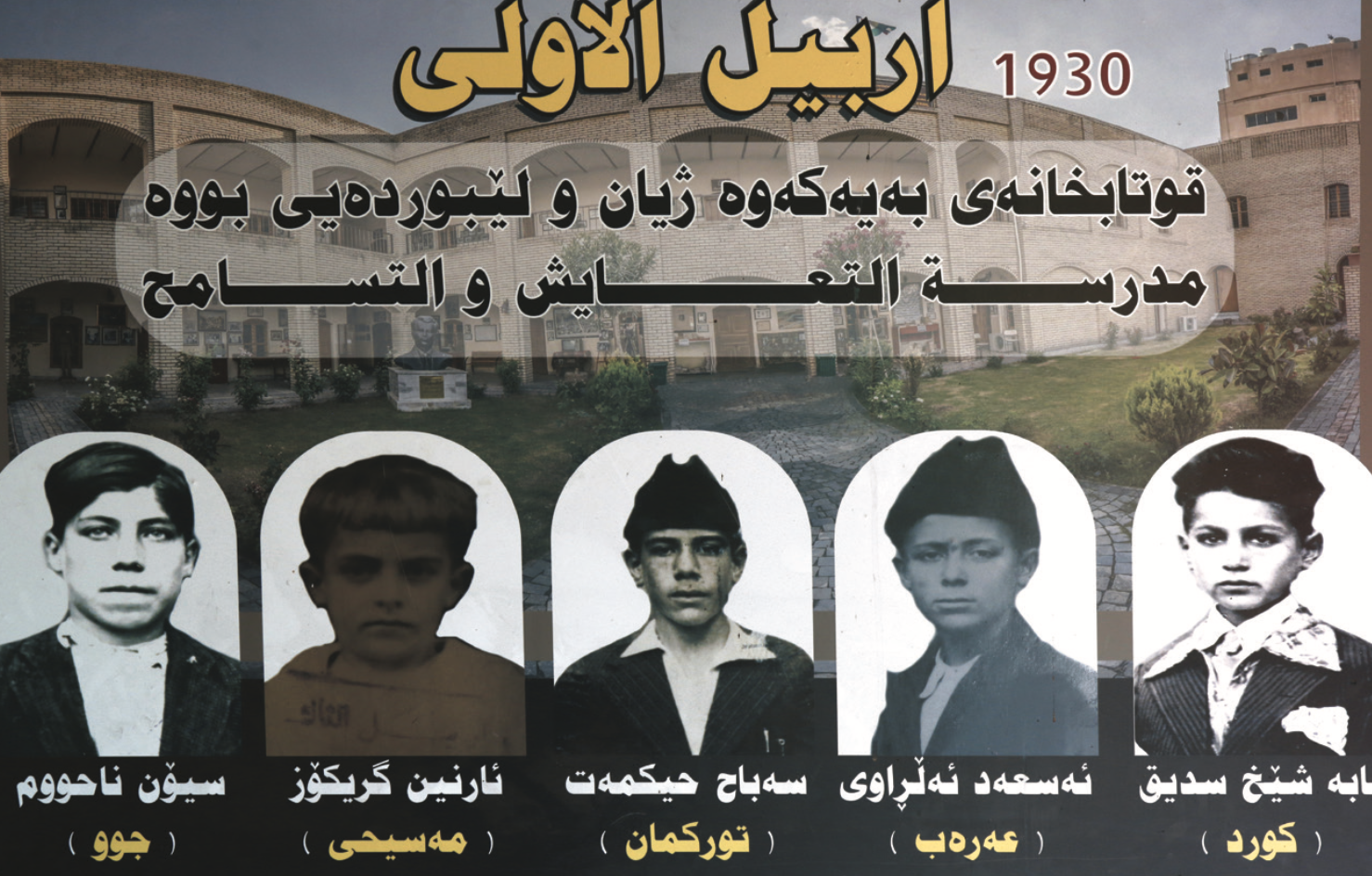Erbil's Museum of Educational Archives, located near the citadel in the city center, provides a remarkable glimpse into the advanced educational standards of the past.
A sense of surprise washes over visitors as they walk through the classrooms of the first primary school in Erbil. Built a century ago, its facilities were truly avant-garde at the time: it had its own movie theater, musical band, theater team, and even a sports team. Vintage photographs on the school’s walls are protected by framed glass and depict the neat and disciplined students who attended this pioneering institution. They all wore the same uniform and participated enthusiastically in various school-organized outdoor activities, such as camping, woodcraft, hiking, backpacking, and sports.
Known as Erbil Al-Uwla, the school holds the honor of being the first official state school in Erbil, the capital of the Kurdistan Region. Prior to its establishment, the region only had religious schools known as madrasas.

Dedication and generosity
After the establishment of Iraq and the coronation of King Faisal I (1883-1933), the decision was made to construct schools in major cities throughout the country. The first school in Erbil was established in 1923 within the walls of the historical citadel. Due to its limited space, Ahmed Naji, a respected figure in Erbil who graduated from a military school in Istanbul, went to King Faisal I requesting funds for a new school building. The king responded positively, allocating funds as well as 845 square meters of land near the citadel for its construction.
The building, consisting of two floors with 13 classrooms, started taking shape. Unfortunately, the funds ran out before construction could be completed. According to Mr. Umed, the museum director Ahmed Naji was undeterred and sought additional financial support from Baghdad. Yet his approaches went unanswered. In a remarkable display of dedication and generosity, he thus decided to sell his own land and property to ensure the school’s completion. Finally, in 1928, the school opened its doors, becoming a beacon of knowledge and opportunity for generations to come. It continued to serve the community until closing in 2005.
In addition to being the driving force behind the school's establishment, Ahmed Naji, due to his education, dedication, and benevolence, became the school’s first headmaster. His remarkable efforts played a pivotal role in the development of Erbil's educational landscape and nurturing the city’s young minds. Today, the Museum of Educational Archives stands as a testament to Erbil's rich educational heritage, reminding visitors of the city's commitment to excellence and tolerance throughout history.

A reflection of Erbil's historical diversity
While most teachers and students were Kurdish Muslims, there were also Christian, Jewish, Turkmen, and Arab teachers and students, cultivating a spirit of coexistence and inclusivity that the defines the Kurdistan Region.
Several classrooms within the museum honor the contributions of Christian and Jewish teachers. Mr. Jamil Zayto's classroom, for example, was a well-known Christian educator. Another classroom is dedicated to Mr. Daniel Qassab, an Erbil-born Jewish artist who taught art and painting. Mr. Daniel, also known as Meir Uzear Katsav in Hebrew, went on to become a teacher at Baghdad's Institute of Fine Arts in 1948 but was deported to Israel in the 1950s by the Iraqi government due to his religious background. Before leaving Erbil, he inspired a number of art teachers who carried on his legacy.
Mr. Daniel was also well-known for his film sketches. These were carried out by two people as they walked through the bazaar informing people about the films that would be shown that week.
There is also a classroom dedicated to the female teachers and students who taught and studied at the school. It was named after Mrs. Shukria Jiawok (1918-2004), Erbil's first female student and teacher. She graduated from Baghdad's College of Teachers in 1936, breaking down gender barriers and paving the way for future generations of female educators.
Another classroom honors Mr. Abdullah Aziz, a science teacher who later became the school's headmaster and was an accomplished photographer who diligently documented the school's activities over the years in addition to his educational role.
While the majority of the teachers were from Erbil, a few came from Mosul to teach Arabic. Mr. Umed, the museum's director, relayed to Kurdistan Chronicle some fascinating stories about the teachers during an exclusive interview. He related an incident involving Mr. Munir Sa'ati, a Mosul-based Arab teacher who had taught Arabic for a decade. Despite his Arab heritage, he was so fluent in Kurdish that none of the students realized he was Arab until he retired and returned to Mosul.
Another fascinating story involves an Indian engineer who worked on the Erbil railway in the 1930s, when the city had its own railway and train station. Due to the school's lack of an English language teacher, this engineer volunteered for many years to teach English, leaving a lasting impression on his students.
For all these reasons and more, the Erbil Museum of Educational Archives stands as a reminder of the city's commitment to embracing diversity and fostering an inclusive learning environment.

The museum needs urgent care
The Erbil Museum of Educational Archives, founded in 2014 with the support of the Kurdistan Regional Government, is Iraq's only educational museum. Despite its importance, the museum requires immediate attention, modernization, and collection-management training.
The museum's director Mr. Umed emphasizes the importance of staff training in various aspects of museum operations, as handling, cataloging, documenting, and preserving valuable collections are all part of the job. Staff must be trained in other critical areas such as inventory management, proper techniques for handling objects, storage practices, and preventative conservation measures. Furthermore, the museum lacks adequate air conditioning, with the majority of classrooms lacking this necessary feature. Better lighting equipment is also required to improve the visitor experience.
Mr. Umed, who attended Erbil Al-Uwla in the 1980s, also wants to connect the Erbil museum with other educational museums around the world.
Nowadays, a steady stream of visitors comes to the museum every day, including people with a personal connection to the school. Children and grandchildren of former students and teachers frequent the museum, cherishing their ancestors' memories. Furthermore, tourists from the Kurdistan Region and other parts of Iraq who visit Erbil make the museum part of their itineraries.
Qassim Khidhir has 15 years of experience in journalism and media development in Iraq. He has contributed to both local and international media outlets.

